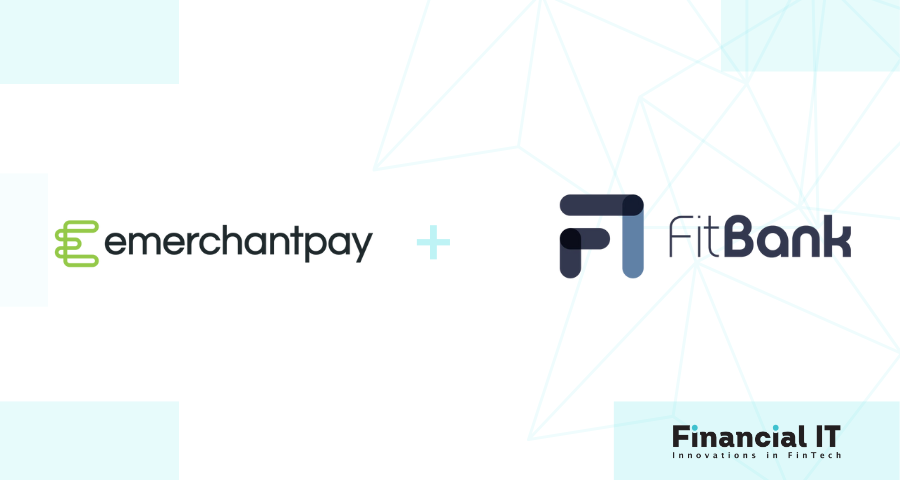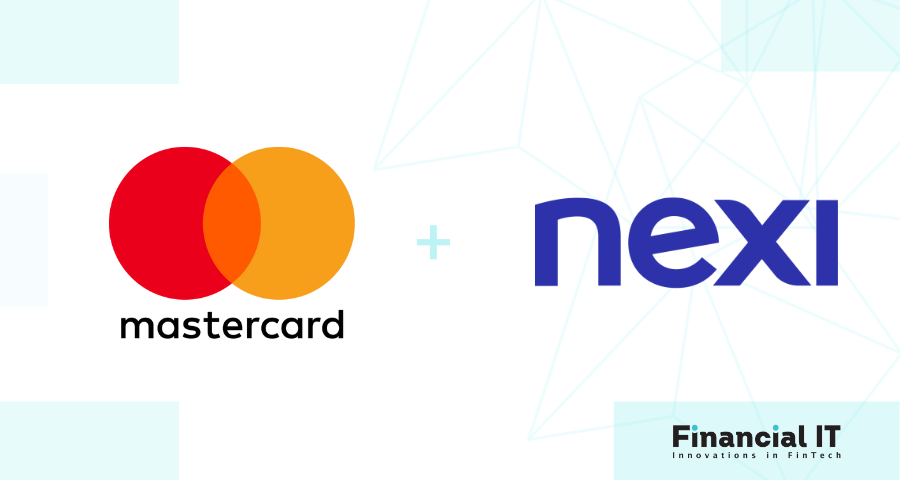Published

Mark Molyneux
EMEA CTO at Cohesity
What began with GDPR regulations is now being followed up by the EU with NIS-2 and DORA. see more

Susan Craig
at Content Creator
Understanding your credit score is crucial for your financial health, and it's a topic that deserves your attention. see more
- 08:00 am

According to a new report from digital trust technology provider Memcyco, most companies have little, if any, visibility into brand impersonation attacks. Because they lack the ability to detect these kinds of attacks, most companies only learn about them through the social media posts of customers who have been scammed, or through customer reports.
This lack of visibility might go some way towards explaining why just 6% of companies believe they’re actually able to protect their customers from such scams, which are a rising attack vector, used to facilitate many kinds of fraud and reap devastating financial and reputational damages on brands, Memcyco said in its report.
Brand impersonation, or brandjacking, is a kind of fraud that involves cybercriminals creating lookalike websites that mimic a trusted brand to trick customers into transacting with the page and giving up their personal information. Most often, malicious actors will send a phishing email or SMS or post on social media, encouraging customers of real brands to click a link to what appears to be the brand’s website. Once customers click on the URL, they’re brought to an impersonated version of a brand’s website and are urged to enter their login details or credit card information, which can then be used to harvest user credentials, hijack or clone credit cards and steal money via fake transactions.
Some kinds of brand impersonation scams can get quite creative, involving fake job ads, for example, or “malvertising”, which refers to fake product ads that appear to have been placed by a legitimate brand, but in fact directs users to an impersonated website.
Brand impersonation attacks are extremely profitable, with the U.S. Federal Trade Commision reporting that hackers made off with more than $1 billion through such schemes in 2023 alone – up more than 85% in the last three years. One likely reason for this growth is their high success rate, as the hackers put a lot of effort into making their malicious sites appear as close to the original as possible, even using similar URLs. They can impact almost any company, but are especially common with larger brands due to their bigger customer bases.
Memcyco’s survey of 200 directors and executives at companies operating transactional websites with at least 10,000 visitors per month illustrates why brands and customers alike need to be wary of brand impersonation scams. The responses indicate that 69% of all brands are aware of their websites being impersonated in the past to facilitate brandjacking attacks. What’s more, 87% of companies say they recognize brand impersonation as a growing cybersecurity concern.
Although this recognition is an encouraging sign, the lack of visibility most definitely is not. Memcyco found that 37% of brands typically only realize their website has been impersonated when they see negative, “brand-shaming” posts on social media. All told, 66% of brands implied their customers are their primary source of intelligence into brand impersonation scams.
According to Memcyco CEO Israel Mazin, the findings suggest that cybercriminals are increasingly turning to brandjacking precisely because of how easy it is for impersonated websites to fly under the radar. “Attackers rely on companies having limited visibility into these kinds of attacks,” he said.
Despite recognizing that brand impersonation is a problem, few brands are actually doing much about it. According to Memcyco, 53% of respondents said they lack the cybersecurity tools to deal with brand impersonation attacks, while another 41% said they’re in a position to “partially” deal with them. Just 6% expressed confidence in their ability to prevent such attacks completely.
Mazin said brand impersonators are taking advantage of a “glaring blindspot in cybersecurity”, namely the “inability of companies to protect their customers online”.
Another notable finding of Memcyco’s report is that 81% of brands do not reimburse customers who lose out financially to brandjacking attacks. However, many brands understand that they’re likely going to be held responsible in the future anyway, as 48% indicated that they’re aware of new regulations that, if passed into law, will legally obligate them to reimburse customers that are fraud victims.
Memcyco offers an anti-website impersonation solution that aims to detect impersonated websites as soon as they appear online. Moreover, the solution protects customers from the “window of exposure” - from the time an impersonated website goes up until the moment it is taken down. During this time, customers are the most vulnerable to fall victim to scams. With Memcyco’s solution, customers that visit an impersonated website get an immediate Red Alert warning them of the danger, urging them not to proceed. Furthermore, Memcyco provides companies with full details of any attack perpetrated against their customers, providing the crucial visibility needed to prevent such attacks in the future.
Related News

Ivan Smirnov
at Content Creator
You run a fintech startup and are eager to get your product to market. But hold up — you can't cut corners when it comes to compliance. see more

Susan Craig
at Content Writer
Over the past decade, consumer behavior toward cash has changed dramatically. The events since the COVID-19 pandemic amplified this. see more

Alex Oger
at Digital Silk
Have you ever wondered how to make your money work for you? see more

Susan Craig
at Content Creator
The financial industry has undergone a massive shift thanks to the many advancements in artificial intelligence (AI) technology. see more
- 05:00 am

emerchantpay, a leading global payment service provider and acquirer, joins forces with Brazil-based fintech company FitBank to reinforce emerchantpay’s payment proposition in Latin America.
The alliance enables emerchantpay to strengthen its cross-border payments offering to merchants and partners targeting the sought-after Brazil eCommerce market. By leveraging FitBank’s platform, emerchantpay is providing its global merchants with additional infrastructure to accept Pix and Boleto payments in Brazil. Furthermore, other benefits include fortifying emerchantpay's risk management capabilities, ensuring even more heightened security and fraud prevention measures for merchants.
This collaboration highlights emerchantpay’s position as a trusted payment service provider for cross-border payments in Latin America and is poised to extend in the future into more countries in the region, such as Mexico and Colombia to name a few.
This announcement comes at a pivotal moment as demand for seamless and efficient real-time payments transactions in the region continues to grow. Brazil ranks among Brazil ranks among the top countries globally in terms of processed real-time payments. Pix, Brazil’s most popular instant payment method, boasted more than 150 million users, while its transaction value reached nearly 11 trillion Brazilian reals - or roughly 2.1 trillion US dollars, according to Statista.
“Our alliance with FitBank is a strategic move as we continuously enhance our payment solution in Latin America. By combining FitBank’s modern and innovative platform with emerchantpay’s powerful cross-border payment offering, we are providing our international merchants with an even more resilient and streamlined payment experience, significantly impacting their conversions”, comments Andre Boesing, VP International Business Development at emerchantpay.
“The collaboration between FitBank and emerchantpay underscores our shared commitment to bring smart and safe solutions for the markets we serve, delivering best in class performance and service. We’re happy to see aligned shared values between the companies, leveraging each company’s strengths. We are well placed to continue leading the market by delivering the most modern solutions for businesses targeting Brazil and the Latin America region”, comments Otávio Farah, co-founder and CEO at FitBank.
Related News
- 02:00 am

Travelex, the global travel money brand, has launched seven stores and eight ATMs at Zayed International Airport – Terminal A.
The four landside and three airside stores take the total number of Travelex stores in the UAE to 49. It marks the latest milestone in Travelex’s expansion across the UAE and wider Middle East, increasing its extensive distribution network in the region.
In recent months Travelex has launched new bureaux and On-The-Move kiosks across airports in Abu Dhabi, Dubai, and Sharjah as well as the Mina Rashid sea port, in addition to investing in the refurbishment and expansion of existing stores at Sharjah airport. Travelex has also launched new ATMs across the Dubai Harbour Cruise Terminal and Dubai International and has grown both their wholesale banknotes and concessionaire businesses significantly in the region.
Batu Dolay, Commercial Director, Travelex Middle East and Türkiye said:
“Zayed International Airport- Terminal A sets a new benchmark for a modern, seamless airport experience, tying in perfectly with our mission to simplify our customers’ access to international money. We are therefore delighted to have launched seven new stores and eight ATMs across the new terminal, affording travellers flying to and from Abu Dhabi more convenience in their international money transactions than ever before.”
Related News
- 06:00 am

Nexi, the leading PayTech in Europe, has chosen Mastercard as its strategic partner across Europe to support open banking account-based payments. Through this partnership, Mastercard Open Banking will facilitate e-commerce payments across Nexi’s gateways serving merchants across Europe.
Together, Mastercard and Nexi will build an integrated digital payment ecosystem by advancing Mastercard Open Banking-powered solutions that offer secure, seamless payment experiences with more choice for consumers when shopping online.
Unlike more traditional payment options, open banking allows anyone with a bank account to initiate swift digital payments to a merchant’s account. Payments are initiated directly through existing authentication protocols with a consumer’s bank, including biometrics, to retrieve the necessary information to execute a payment, making the experience easy and efficient.
Benefits for merchants include real-time payment authorization and settlement, enabling quick access to funds and improved management of cash flow and revenue streams. By leveraging innovative technologies and payment methods, merchants can better align with heightened customer expectations for fast and frictionless payment experiences in the digital landscape.
“We are excited to lead the development of an account-based payment method that will make online purchases more seamless and secure as well as expand payment choice in partnership with Nexi,” said Bart Willaert, EVP, International Open Banking at Mastercard. “We have been powering and protecting our global payments network and the broader digital ecosystem for more than five decades, and now Mastercard’s innovative open banking technology will offer consumers and businesses across Europe access to more innovative payment experiences.”
"We are thrilled to announce our strategic collaboration with Mastercard, through which we will harness the power of its open banking solutions in Europe to scale and enhance our capabilities, and boost customer convenience in payments,” said Omar Haque, Head of eCommerce at Nexi. “By partnering with Mastercard and capitalizing on its leadership and expertise in open banking, as well as its trusted payments infrastructure, we further enhance our ability to facilitate the transition to a digital-first payments landscape in Europe.”









